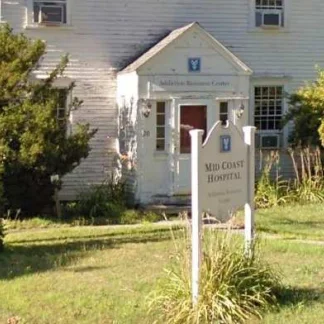Mid Coast Hospital Addiction Resource Center
Damariscotta, Maine, 20 Bristol Road, 04543
Available Programs
- Adolescence program
- Adult program
- Program for men
- Program for women
Insurance and Financial
- Medicaid
- Medicare
- Private insurance
- Self-pay options
- Financial aid
- Military insurance
About this Facility
Mid Coast Hospital Addiction Resource Center is a private rehab located in Damariscotta, Maine. Mid Coast Hospital Addiction Resource Center specializes in the treatment of alcoholism, drug addiction, opioid addiction, and substance abuse.
Contact us for more information: (207) 563-2311

Contact Mid Coast Hospital Addiction Resource Center
Connect with Mid Coast Hospital Addiction Resource Center by calling their admissions team directly.
(207) 563-2311 Website Get Directions